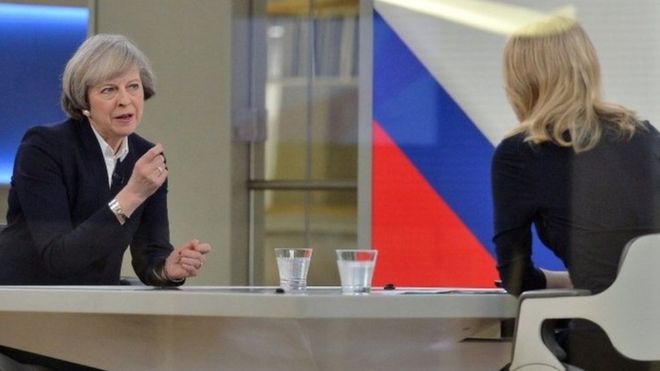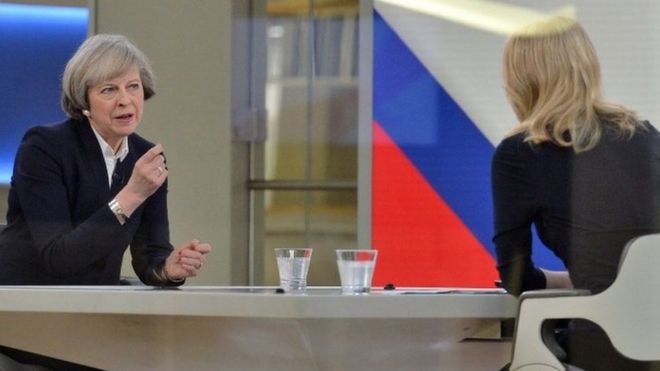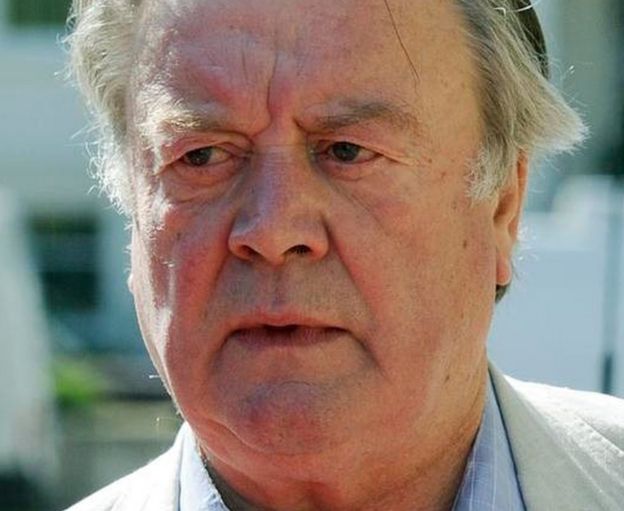

The UK cannot expect to hold on to “bits” of its membership after leaving the EU, Theresa May has said.
The prime minister’s comments come as the government prepares to begin talks on Brexit, including whether the UK stays in the European single market.
She told Sky News her approach was not “muddled”, following criticism by the UK’s former EU ambassador.
Mrs May, whose critics have demanded more detail of her aims, promised to provide this in “the coming weeks”.
- Sturgeon: ‘I’m not bluffing’ on indyref2
- Brexit threat by Tory donor Andrew Cook
- Brexit: All you need to know
- What are the Brexit options?
But Labour accused the prime minister of failing to reveal whether she was prioritising “immigration over access to the single market”.
Brexit talks with the EU are expected to begin as early as April.
There has been much debate in recent weeks about the nature of the deal the government is aiming for, in particular whether controls on the movement of EU citizens will mean the UK leaves the European single market and customs union.
‘Ambitious’
Sir Ivan Rogers, who resigned as the UK’s ambassador to the EU last week, criticised “muddled thinking” among ministers.
But Mrs May told Sky News’s Sophy Ridge on Sunday: “Anybody who looks at this question of free movement and trade as a sort of zero-sum game is approaching it in the wrong way.
“I’m ambitious for what we can get for the UK in terms of our relationship with the European Union because I also think that’s going to be good for the European Union.
“Our thinking on this isn’t muddled at all.”
‘Right relationship’
But it was “important to take some time” to look at the “complexity of the issues”, she added.
Mr May said: “Often people talk in terms as if somehow we are leaving the EU, but we still want to kind of keep bits of membership of the EU.
“We are leaving. We are coming out. We are not going to be a member of the EU any longer.
“So the question is what is the right relationship for the UK to have with the European Union when we are outside. We will be able to have control of our borders, control of our laws.”
In the referendum last summer, voters opted by 51.9% to 48.1% in favour of Brexit.
 Image copyrightREUTERS
Image copyrightREUTERSMrs May said: “This is what people were voting for on 23 June.
“But of course we still want the best possible deal for us, companies to be able to trade, UK companies to be able to trade in and operate within the European Union and also European companies to be able to trade with the UK and operate within the UK.”
The prime minister has promised to invoke Article 50 of the Lisbon Treaty – getting formal Brexit negotiations with the EU under way – by the end of March.
Mrs May told Sky: “Over the coming weeks, I’ll be setting out more details of my plan for Britain. Yes, that’s about getting the right deal for Brexit, but it is also about economic reform…
“It’s about getting the right deal internationally, but it’s also about a fair deal at home.”
‘Taking back control’
For Labour, following Mrs May’s interview, shadow Brexit secretary Sir Keir Starmer told the BBC: “She had one question put to her three times and still didn’t answer it, which is, ‘Are you prioritising immigration over access to the single market?’
“That was the question she didn’t want to answer. And I think now, 10 to 11 weeks from the triggering of Article 50, and the most important negotiations for a generation, we need more clarity than that, and we haven’t got it.”
Liberal Democrat leader Tim Farron said Mrs May’s comments “confirmed she is taking us towards a disastrous hard Brexit that will leave our country poorer and more divided”.
‘Disastrous’
But Richard Tice, co-chairman of the Leave Means Leave campaign, said: “We welcome the prime minister’s commitment to taking back control of Britain’s borders, therefore ending preferential treatment for EU citizens.
“She is right that issues of trade and immigration are not binary because when Britain leaves the single market and the customs union, though freedom of movement will cease, Britain’s ability to trade with the EU and access the single market will continue.”
Labour MP and leading supporter of pro-EU Open Britain group, Chuka Umunna, said:”Any trading arrangement outside the single market would erect barriers with our largest trading partner and would be disastrous for the UK economy, jobs and businesses.”
Europhile former Conservative chancellor Ken Clarke told BBC One’s Andrew Marr Show: “Theresa needs to address the more serious question of the muddle [Sir Ivan is] complaining about, see whether she agrees with him and decide whether she can improve the way in which she organises the government to get to a proper conclusion.”
[Source:-BBC]
